����ͷ����2011-2012ѧ���ѧ����ĩ���ۺ���ϰ
�����������⣨��26PLC��ѵѧУ,��
���������Ի������������������A��B��C��ͼƬPLC��ѵѧУ,ѡ����Ի����������ͼƬ��ÿ�ζԻ������顣����4PLC��ѵѧУ,��ÿС��1PLC��ѵѧУ,��
���������Ի�����ף����ݶԻ���������ݣ����������������A��B��C��ѡ��PLC��ѵѧУ,ѡ�����ѡ�ÿ�ζԻ���������顣����12PLC��ѵѧУ,��ÿС��1PLC��ѵѧУ,��
���������ζԻ�����ɵ�5����6С�⡣
����( ) 5. What did Mary have for breakfast?
����A. An apple.B. An orange.C. A banana.
����( ) 6. When did she get to school?
����A. At 7:45. B. At 7:50. C. At 7:55.
���������ζԻ�����ɵ�7����8С�⡣
����( ) 7. What did Tom look for?
����A. A book.B. A magazine.C. A dictionary.
����( ) 8. Whom did he lend it to?
����A. His classmate.B. His friend. C. His teacher.
���������ζԻ�����ɵ�9����10С�⡣
����( ) 9. Why is Tom going to Tokyo?
����A. Because he��s got a new job there.
����B. Because he��s got married.
����C. Because he��s got a friend there.
����( ) 10. How will they keep in touch?
����A. By phone. B. By QQ. C. By letter.
���������ζԻ�����ɵ�11����13С�⡣
����( ) 11. Where did the woman go for her trip?
����A. To New York. B. To Sydney. C. To Paris.
����( ) 12. When did the woman find her wallet lost?
����A. When she was talking with her friend.
����B. After she got back from her trip.
����C. When she was going to pay for the ticket.
����( ) 13. How did the woman come back?
����A. By train. B. In her friend��s car.C. By air.
���������ζ��ף���ɵ�14����16С�⡣
����( ) 14. How long has John been in China?
����A. For about two years.B. For about five years. C. For about eight years.
����( ) 15. What are they interested in?
����A. Food and culture. B. Sports and customs. C. People and countries.
����( ) 16. What can John help the children in the northwest with?
����A. Their maths.B. Their drawing.C. Their life.
���������ζ��ף������������Ķ������ݺ���ʾ�����¼�ؼ����������顣����10PLC��ѵѧУ,��ÿС��2PLC��ѵѧУ,��
����֪ʶ���� ����25PLC��ѵѧУ,��
������������գ���13PLC��ѵѧУ,��ÿС��1PLC��ѵѧУ,��
�������������������A��B��C��D��ѡ��PLC��ѵѧУ,��ѡ���������հ״������ѡ�
����( ) 22. I��m going to play basketball. Would you like to go with __________?
����A. meB. IC. myD. mine
����( ) 23. He usually has breakfast at home ________ Sundays.
����A. in B. on C. at D. of
����( ) 24. -________ did you come to school this morning, Miss Smith?
����-By bus.
����A. How B. When C. Who D. What
����( ) 25. -Is there anything wrong with your computer, Mike?
����-No, there is ________ wrong with it. It works well.
����A. anythingB. something C. everything D. nothing
����( ) 26. Alice is one of the ________ students in our class.
����A. good B. well C. betterD. best
����( ) 27. -Must we clean the classroom, Mr. Brown?
����-No, you ________.
����A. mustn��t B. can��t C. needn��t D. shouldn��t
����( ) 28. It��s a little cold outside, _________ you should put on your coat.
����A. or B. so C. but D. because
����( ) 29. Tony ________ the old people in their homes with his classmates next Saturday.
����A. help B. helpsC. will helpD. has helped
����( ) 30. Their words made her ________ excited.
����A. feel B. feels C. feltD. to feel
����( ) 31. Betty ________ Beijing Opera for two years.
����A. is studying B. was studying C. will study D. has studied
����( ) 32. We ________ on the playground when it began to rain yesterday afternoon.
����A. run B. ran C. are running D. were running
����( ) 33. Guo Jingming��s books ________ by many young people today.
����A. read B. reads C. is read D. are read
����( ) 34. -Do you remember __________ the Art Museum? -Last Friday.
����A. when we will visit B. when we visited
����C. when will we visit D. when did we visit
��������գ���12PLC��ѵѧУ,��ÿС��1PLC��ѵѧУ,��
����ͨ��������ģ����������, Ȼ��Ӷ��ĺ���������ĸ�ѡ��PLC��ѵѧУ,ѡ����������Ӧ�հ״���ѵ��
����It was two days before Christmas, when my ten-year-old Almie Rose told her father and me that she wanted a new bike. Her bike was too 35 , and it needed repairing as well.
����As Christmas came nearer, her dream for a bike seemed to disappear, we thought, for she didn't say it again. We were busy 36 some beautiful story books, a doll house, a holiday dress and toys. Then to our surprise, on December 24, she said she really wanted a bike more than 37 .
����Now we didn't know 38 to do. It was just too late. We were busy with Christmas dinner and packing children's presents, parents' presents, a brother's present and friends' presents till midnight. So there was no time to take to buy the "right bike" for our little girl. Thinking we were parents who would make their child unhappy, we felt sorry and 39 .
����Suddenly my husband had an idea. "What about making a little bike with clay (����) and writing a note that she could trade in (��) the model bike for a real one?" So he spent the next five hours carefully 40 with clay to make a small bike.
����41 Christmas morning, we were so excited for Almie Rose to open the little box with the beautiful red and white clay bike and the note. She opened and read the 42 loudly. She looked at me and said, "So, does this mean I can trade in this bike for a real 43 ?" Smiling, I said, "Yes!" Almie Rose had tears in her eyes when she replied, "I would 44 trade in this beautiful bike Daddy 45 for me. I 46 keep it than get a real bike. This is the best Christmas present I have ever got in my life!"
����( ) 35. A. newB. oldC. beautifulD. modern
����( ) 36. A. buy B. bought C. to buy D. buying
����( ) 37. A. something elseB. anything else C. else something D. else anything
����( ) 38. A. what B. how C. why D. where
����( ) 39. A. happy B. excited C. sad D. angry
����( ) 40. A. works B. worked C. working D. to work
����( ) 41. A. In B. On C. At D. For
����( ) 42. A. book B. story C. note D. newspaper
����( ) 43. A. one B. ones C. some D. any
����( ) 44. A. usually B. certainly C. never D. of course
����( ) 45. A. repaired B. bought C. borrowed D. made
����( ) 46. A. am going to B. would like to C. had better D. would rather
����PLC��ѵѧ�Ѷ���,���⣨��44PLC��ѵѧУ,��
������PLC��ѵѧ�Ѷ���,���ж��ģ����ݶ������ݣ��Ӷ��ĺ����������A��B��C��D��ѡ��PLC��ѵѧУ,��ѡ�����ѡ�����26PLC��ѵѧУ,��ÿС��2PLC��ѵѧУ,��
����A
����We pick up your children at school and give them a safe place to play, do homework and learn after school. Experienced Teachers��Lunch & Snacks��Toys & Books Ages 6 to 12 Our Programs: *Languages *Math *Computer *Music Open 11:00 a. m. to 7:00 p. m., Monday to Friday. 26 Market Road, Star City (between First Street and Second Street, next to the Flower Market) TEL: 8765-4321
����( ) 47. What can't children learn in Little Rabbit?
����A. Art.B. Music.C. Computer.D. Languages.
����( ) 48. Mrs. Green can send her daughter Lucy to Little Rabbit except(����֮��) _______.
����A. 6:00 p.m. on Friday B. 7:00 a.m. on Wednesday
����C. 11:00 a.m. on Tuesday D. 12:00 a.m. on Monday
����( ) 49. Little Rabbit will be open for ________ in a week.
����A. 4 hours B. 8 hours C. 20 hours D. 40 hours
����( ) 50. Who can have fun and learn in Little Rabbit?
����A. Mike, a school boy of 13.B. Mary, an eight-year-old girl.
����C. Cathy, an experienced teacher.D. Linda, a housewife without work.
B
������When can I get a cell phone?�� The answer is when your parents think you need one, though many kids seem to be getting them around age 12 or 13. Some younger kids may have them because their parents see it as a matter of safety and convenience. For ple, a kid can call mom and dad when sports practice is over. And a cell phone can give kids almost instant access(���ͨ��) to their parents if something goes wrong or they need help.
����It can give parents quick access to their kids so they can check on them and make sure they��re OK.
����If you do get a cell phone, make some rules with your parents, such as how many minutes you��re allowed to spend on the phone, when you can use your phone, when the phone must be turned off, and what you will do if someone calls you too often, and so on.
����You��ll also have to learn to take care of the phone in your life. Keep it charged(���) and store it in the safe place so it doesn��t get lost. And whatever you do, don��t use it in the bathroom. I know someone who dropped her phone in the toilet!
����( ) 51. Parents buy cell phones for their kids because ___________.
����A. they think it is necessary
����B. they think their kids are old enough
����C. they have asked the author for advice
����D. they want to follow their kids wherever they are
����( ) 52. The author of the passage ___________.
����A. wants to describe how children use cell phones
����B. knows nothing about when children can have a cell phone
����C. may have done a survey on kids using cell phones
����D. has been a teacher for many years
����( ) 53. Which of the following is true?
����A. It is too young for kids of 12 or 13 to get a cell phone.
����B. A cell phone is useful for kids and their parents.
����C. The author is against the idea of kids to have cell phones.
����D. Most kids are considering having cell phones.
����C
����There are over 800 boarding (����) schools in the UK with students from home and foreign countries. Boarding schools started hundreds of years ago in the country. But the earliest boarding schools were set up for white, rich boys only. Now both boys and girls can go to boarding schools from the age of 7 to 18.
����What to do
����In the UK, boarding schools have three terms in a school year, with about 13 weeks in each term. Students study and live together. They can��t go outside if they are not allowed to. In some schools, each student has his or her subject plan. Besides the usual classrooms and laboratories, the boarding schools have lots of other facilities for their students, including music rooms, boats, swimming pools, cinemas and theatres. Most boarding schools have a ��light out�� time. So when it��s time to go to bed, all the lights in the bedrooms are turned off. There are house-masters to take care of students all the time, especially after school hours.
����What to wear
����Nearly all students at boarding schools wear a school uniform. Boys usually wear a shirt and a tie, and girls wear a white blouse, sometimes also a tie and a skirt. As students get older, the rules become less strict.
����____________
����In the UK, boarding schools provide students with delicious food. They can choose to have a full English breakfast or simply bread. They can also choose between a meal with no meat and another meal at lunch and dinner. And there is always self-service for salad (ɳ��), other side dishes and a dessert. Students can also make themselves something to eat at any time in a kitchen, or drink tea or have a snack between meals.
����( ) 54. Which of the following is TRUE according to (����) the passage?
����A. Only white children were allowed to attend the earliest boarding schools.
����B. Students in a boarding school are looked after only after school hours.
����C. As students get older, the rules about wearing school uniforms become stricter.
����D. Students can have different activities in a boarding school.
����( ) 55. Which is the best title for the last paragraph?
����A. What to eat B. When to eat C. Where to eat D. How to eat
����( ) 56. The underlined word ��facilities�� means _____________.
����A. ��ʦ B. ��ʩ C. � D. �γ�
��D
����Happiness is important for everyone. Most people want to be happy but few know how to find happiness. Money and success don��t bring lasting happiness. Happiness depends on ourselves. In other words, we make our own happiness.
����Some people believe that if they are wealthy, they will be able to do anything they want, which means happiness. On the other hand, some people believe that holding a high position in the government is happiness. In this way, you have not only money, but also many other things which can��t be bought by money. However, other people believe that having lots of money is not happiness, nor is holding a high position in the government. These people value(����) their beliefs, or their intelligence, or their health. They think these can make them happy.
����Here are a few ways to help you be happier.
����The first secret of happiness is to enjoy the simple things in life. Too often, we spend so much time thinking about the future, for ple, getting into college or getting a good job, that we don��t enjoy the present. You should enjoy life��s simple pleasures, such as reading a good book, listening to your favorite music, or spending time with close friends. People who have close friends usually enjoy happier and healthier lives.
����The second secret of happiness is to be active. Many people go dancing or play sports. People can forget about their problems and only think about the activities.
����Finally, many people find happiness in helping others. According to studies, people feel good when they volunteer their time to do many meaningful things for other people. If you want to feel happier, do something nice for someone. You can help a friend with his or her studies, go shopping to get food for an old neighbor, or simply help around the house.
����Now maybe you know how to find happiness!
����( ) 57. Some people who hold a high position in the government think they can _________.
����A. get money and something they can��t buy with money
����B. do what they want to do at any time
����C. enjoy health which makes them work hard
����D. take an active part in all kinds of activities every day
����( ) 58. The writer thinks the secret of happiness is that people ___________.
����A. think about getting a good job B. think of presents they don��t like
����C. often spend time with close friends D. often spend time on entering the college
����( ) 59. Many people find it happy to ___________.
����A. remember the old days and troublesB. do some meaningful things for others
����C. go shopping to buy some food D. make much money and little success
������PLC��ѵѧ�Ѷ���,���ģ����ݶ������ݣ��Ӷ��ĺ�ĸ�ѡ��PLC��ѵѧУ,ѡ��������հ״������ѡ�ѡ
������PLC��ѵѧУ,����Ϊ����ѡ�����8PLC��ѵѧУ,��ÿС��2PLC��ѵѧУ,��
����When you are learning English, listening, speaking, and writing are important, but reading can also be very helpful. When you read, you can not only learn some new words, but also you can learn how to use these English words.
����Try to read at the right level (ˮƽ). (60)________ If you need to stop every three words to use a dictionary, it is not interesting.
����Try to increase the number of your new words. If there are four or five new words on a page, write it in your notebook. But you don't have to write them while you read. (61)________ Then come back when you have finished reading to look them up in a dictionary and write them in your own vocabulary book. Then try to remember them.
����Try to read regularly. For ple, read for a short time once a day. (62)________ Fix (�̶�) a time to read and keep to it. You could read for fifteen minutes when you go to bed, or when you get up or at lunchtime.
����Read what interests you. (63)________ You can also read newspaper.
������PLC��ѵѧ�Ѷ���,���ģ����ݶ������ݻش�PLC��ѵѧУ,������10PLC��ѵѧУ,��ÿС��2PLC��ѵѧУ,��
����Alexander Graham Bell was a British man who was a teacher to people who could not hear. He was born in Edinburgh, Scotland in 1847 and went to school in Edinburgh and London. People who can not hear any sounds at all are called deaf people, and Alexander became interested in helping them to learn to speak. He taught people how to use their mouths to make the sounds needed for talking.
����Bell��s family moved to Canada in 1870 and to the USA in 1871. For several years he taught the people who could not speak in Boston. But at the same time he was developing a way to use electricity to send the sounds of talking along a wire, and he made the first telephone in June, 1875. He worked hard in his workshop for six months with his helper Tom Watson. Finally, he spoke these famous words slowly into the telephone, ��Mr. Watson, come here. I want to see you.�� and Watson came to him.
����The telephone developed quickly in the USA over the next few years. The Bell Telephone Company started in 1877, and in 1878 the first telephone centre was built in New York. More than 150,000 people had telephones in their homes ten years later. Alexander Graham Bell was a kind man and spent much of his money and time during the rest of his life helping deaf people. In 1922 he died in Canada.
����64. Where was Alexander Graham Bell born, in England or Scotland?
����_____________________________________________________________________________
����65. What was he interested in doing when he was in Britain?
����_____________________________________________________________________________
����66. When was the first telephone invented?
����_____________________________________________________________________________
����67. Did he stop helping the disabled when he became famous?
����_____________________________________________________________________________
����68. What do you think of the great inventor?
����_____________________________________________________________________________
������������25PLC��ѵѧУ,��
�����š���ɾ��ӣ���10PLC��ѵѧУ,��ÿС��2PLC��ѵѧУ,��
��������PLC��ѵѧУ,����˼��ɾ���
����69. ������ܰ���Ϊʲô�������أ�
����It��s very dark in the room. ________________ turn on the light?
����70. ����Ը���������ȥ������
����____________________________ go to the concert with us?
����71. ��Ϊ��̫���ˣ���ò�Ҫ���������ˡ�
����________________________ go on with your work because you are too tired.
����72. ������������ֱ����ķ������������뿪��
����________________________ Tom��s mother returned last night.
����73. ��Ϊ����������ʱ���ˡ�
����___________________________________ the Spring Festival.
�������Ķα��� ����15PLC��ѵѧУ,��
����74. ֪�����ж�����������¡���ĸ����ʦ�����Ѻ�ͬѧ��������ĸж���������дƪ���ģ�����м�֮�飬�������������������Ƕ���İ��������ʹ��ж��ģ��Լ���ĸ��ܡ�Ҫ����˼���ᡢ��������������60�PLC��ѵѧУ,�
�ο�PLC��֤��ѵ��PLC��ѵѧУ,ѧ�ѱ�
�����������⣨��26PLC��ѵѧУ,��
���������Ի������������������A��B��C��ͼƬPLC��ѵѧУ,ѡ����Ի����������ͼƬ������4PLC��ѵѧУ,��ÿС��1PLC��ѵѧУ,��
����1. B2.C 3. A 4. A
���������Ի�����ף����ݶԻ���������ݣ����������������A��B��C��ѡ��PLC��ѵѧУ,ѡ�����ѡ�����12PLC��ѵѧУ,��ÿС��1PLC��ѵѧУ,��
����5. B6. A7. C8. A9. A10. B
����11. A12. C13. B14. B15. C16. B
���������Ի��������������ĶԻ����ݺ���ʾ�����¼�ؼ�������10PLC��ѵѧУ,��ÿС��2PLC��ѵѧУ,��
����17. Library 18. bus19. food20. shop21. three / 3
����ע��17С����ĸL Сд����PLC��ѵѧУ,��
����֪ʶ���� ����25PLC��ѵѧУ,��
������������գ���13PLC��ѵѧУ,��ÿС��1PLC��ѵѧУ,��
����22. A23. B24. A25. D26. D27. C28. B
����29. C30. A31. D32. D33. D 34. B
������������գ���12PLC��ѵѧУ,��ÿС��1PLC��ѵѧУ,��
����35. B36. D37. B38. A39. C40. C
����41. B42. C43. A44. C45. D 46. D
����PLC��ѵѧ�Ѷ���,���⣨��44PLC��ѵѧУ,��
������PLC��ѵѧ�Ѷ���,���ж��ģ����ݶ������ݣ��Ӷ��ĺ����������A��B��C��D��ѡ��PLC��ѵѧУ,��ѡ�����ѡ�����26PLC��ѵѧУ,��ÿС��2PLC��ѵѧУ,��
����A 47. A 48. B 49. D 50. B
����B51. A. 52. C53. B
����C54. D 55. A 56. B
����D57. A58. C59. B
������PLC��ѵѧ�Ѷ���,���ģ����ݶ������ݣ��Ӷ��ĺ�ĸ�ѡ��PLC��ѵѧУ,ѡ��������հ״������ѡ�ѡ��PLC��ѵѧУ,����Ϊ����ѡ�����8PLC��ѵѧУ,��ÿС��2PLC��ѵѧУ,��
����60. E 61. B62. D63. A
������PLC��ѵѧ�Ѷ���,���ģ����ݶ������ݻش�PLC��ѵѧУ,������10PLC��ѵѧУ,��ÿС��2PLC��ѵѧУ,��
����64. In Scotland.
����65. He was interested in helping the deaf (people).
����66. It was invented in June, 1875. / In June, 1875.
����67. No, he didn��t. / No.
����68. He was kind/ clever/ hard-working/ creative/great.
����������25PLC��ѵѧУ,��
�����š���ɾ��ӣ���10PLC��ѵѧУ,��ÿС��2PLC��ѵѧУ,��
����69. Why not
����70. Would you like to
����71. You had better not
����72. We didn��t leave
����73. It�� time to get ready for
�������Ķα��� ��15PLC��ѵѧУ,��
����74. ֪�����ж�����������¡���ĸ����ʦ�����Ѻ�ͬѧ��������ĸж���������дƪ���ģ�����м�֮�飬�������������������Ƕ���İ��������ʹ��ж��ģ��Լ���ĸ��ܡ�Ҫ����˼���ᡢ��������������60�PLC��ѵѧУ,�
����One possible version��
����There are many people in my life who helped or are helping me now. I feel grateful to them.
����Without their help, I can��t imagine how my life will be like. Among them, I should give my special thanks to Miss Wang who helps a lot with my English.
����I remember the first day when I came to the school as a middle school student. I was short and shy at that time. Everything was new to me. What was more, my English was rather poor. I didn��t dare to speak or to answer the questions in class. I didn��t know how to learn English. Miss Wang saw what happened to me and she encouraged me to be brave and active in class and told me many useful ways to learn English. With her great help, I changed a lot in and after class and my English became better and better.
����Thank you, Miss Wang. Thanks a lot. And I will learn from you and be a caring person. I will try my best to helpful.
�����������PLC��ѵѧУ,ѧ�ѱ���
�����ڵ�����15-13PLC��ѵѧУ,��
������ȫ����PLC��ѵѧУҪ�������������ḻ��������ʹ�ö��־��ͽṹ�ͷḻ�Ĵʻ㡣����ͨ˳���������ᣬ�����������������
�����ڵ�����12-9PLC��ѵѧУ,��
����������PLC��ѵѧУҪ�����ݻ���������ṹ�ʹʻ��ѧPLC������������������Ҫ�����Ի�ͨ˳����������ᣬ������������Ȼ���������Դ�����Ӱ���������⡣
�����ڵ�����8-5PLC��ѵѧУ,��
������PLC��ѵѧУ,���ݷ���PLC��ѵѧУҪ�����ݲ�����������ṹ�ʹʻ����϶࣬���Բ�ͨ˳�����ﲻ�������Ӱ���������⡣
�����ڵ�����4-0PLC��ѵѧУ,��
������PLC��ѵѧУ�йص����ݲ��ֻ࣬�ܼ�ƴ����ʾ�����д������������
��������
��ͷ����2011-2012ѧ�꣬��ѧ����ĩ����Ӣ������ѧУ���ڿ�ʼ����ͬѧ�ǽ�PLC��ѵѧУ,�� ������ҳ�����ô�������
���������Ի������������������A��B��C��ͼƬPLC��ѵѧУ,ѡ����Ի����������ͼƬ��ÿ�ζԻ������顣
����Number one
����W: How do you go to school every day, Mike?
����M: I go to school by bike. It��s cheap.
����Number two
����M: What��s your favourite fruit, Ann?
����W: Apples. They are delicious and healthy.
����Number three
����W: It��s a beautiful computer. Who gave it to you?
����M: My parents and they gave it to me as a birthday present.
����Number four
����W: Which sports do you like best, Tony?
����M: I like skiing best and you know it��s really exciting.
���������Ի�����ף����ݶԻ���������ݣ����������������A��B��C��ѡ��PLC��ѵѧУ,ѡ�����ѡ�ÿ�ζԻ���������顣
���������ζԻ�����ɵ�5����6С�⡣
����M: Good morning, Mary!
����W: Morning, Bob!
����M: You are so early today. When did you get to school this morning?
����W: At a quarter to eight.
����M: Have you had breakfast?
����W: Yes, and I had an orange.
���������ζԻ�����ɵ�7����18С�⡣
����W: Hi, Tom! You look so busy. What are you doing here?
����M: I��m looking for my dictionary. It��s important for me.
����W: Don��t worry. When��s the last time you saw it?
����M: Let me think it over. Ah, I remember. My classmate Andy said he wanted to use it for one night to look for the new words in his composition.
���������ζԻ�����ɵ�9����10С�⡣
����W��Tom��I hear you are going to Tokyo��
����M��Yes��I��ve got a new job there��
����W��Oh��that��s great ! But I��m going to miss you��
����M��Do you have my QQ number ?
����W��Yes��of course��
����M��OK��let��s talk on QQ then��
���������ζԻ�����ɵ�11����13С�⡣
����M��How was your trip to New York, Jane?
����W��It was great until I lost my wallet.
����M��Really? How did that happen?
����W��I was waiting in line to buy a ticket at the train station. When I wanted to get the money, I found my wallet lost.
����M��Bad luck ! Did you leave it anywhere?
����W��I don��t know.
����M��Then how did you come back?
����W��I called my friend and he drove me back home.
�����ζ��ף���ɵ�14����16С�⡣
����Hi, everyone! My name is John Dean and I��m from the United Kingdom. I came to China in 2007 and I am teaching in Number 10 school in Beijing. I am an English teacher and all my students like me very much. We talk a lot with each other in and after class. It seems that we are interested in each other and the people and the countries. I hear that many English teachers are needed in the northwest of China where people are leading a poor life. There are not enough schools, either. I am really sorry to hear that and I have decided to go there and try my best to help the children. I am also good at painting and I think I can help them with their art someday. I really hope so. Thank you very much.
���������ζ��ף������������Ķ������ݺ���ʾ�����¼�ؼ����������顣
����Hello, boys and girls! May I have your attention now? I��m Miss Wang, from Students�� Union of our school. I��m glad to be here and tell you something about visiting the City Library tomorrow. The library has a long history of 80 years. Many famous people studied there after school when they were young. There are a lot of books for you to read and of course, you can borrow them if you like. Since the library is far from our school, we will go there by bus. And we will meet at the school gate at nine tomorrow, clear? Good! Oh, by the way, we will provide you food and drinks because food and drinks are not allowed in the library. There is a big shop in the library and you can buy books and gifts there. Remember that we will leave the library at three in the afternoon.
��
������ز鿴�������ϡ���������ͷ����2012����꼶Ӣ���ϲ���ĩPLC��ѵ�༰PLC��֤��ѵ
2016�겻�ϱ仯,sp.hnygpx.net/wz_index.php? PLC��ѵѧУ���ṩ��PLC��ѵѧУ,PLCѧУ��PLC��ѵѧУ�����ο�������������������ŵ�Ϊ��


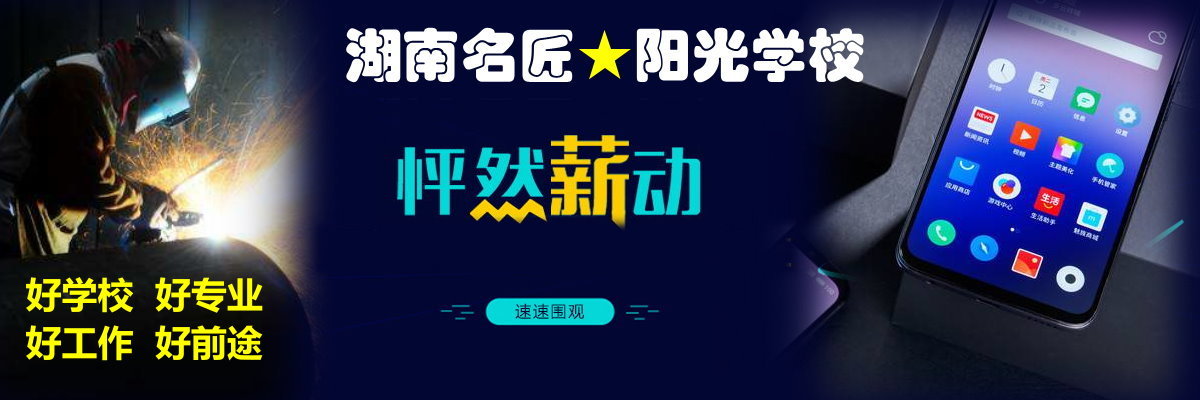



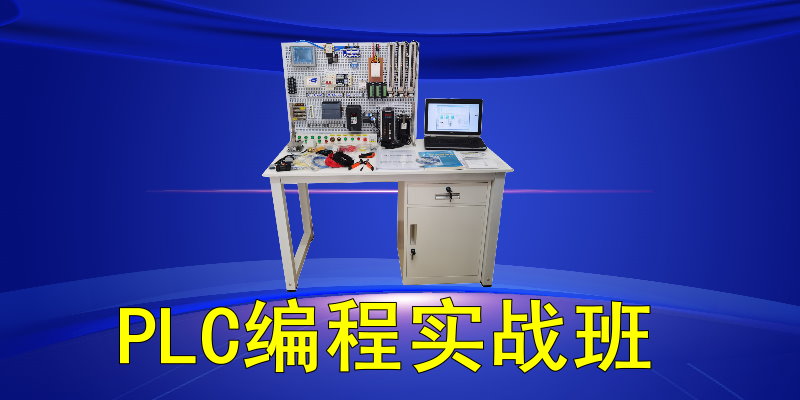

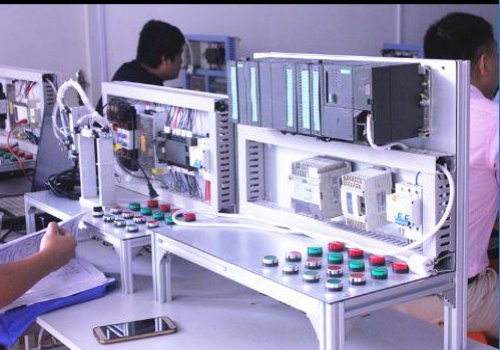
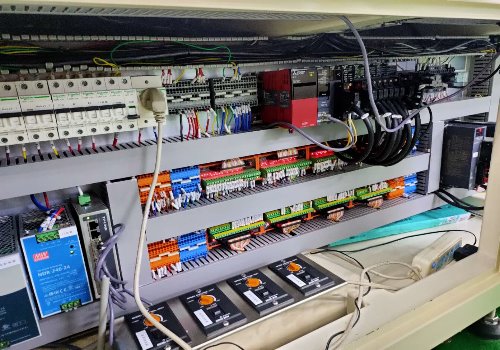
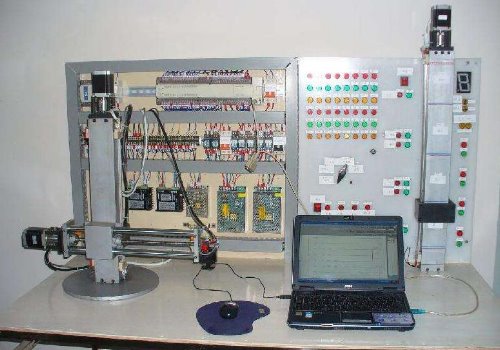
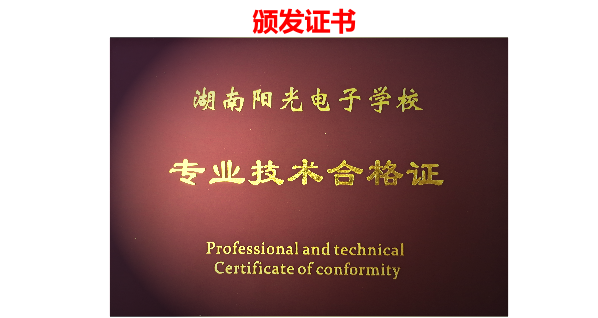
 ɨ�������
ɨ�������


